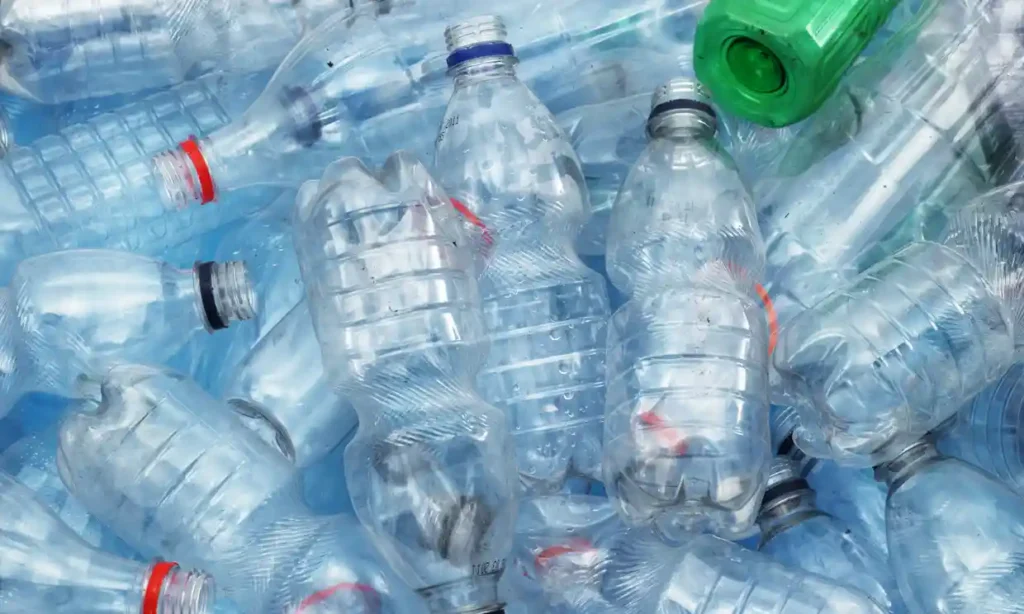Opinion: Most Plastic Recycling Is Environmental Fraud

Representatives from 173 countries last year agreed to develop a legally binding treaty covering the ‘full lifecycle’ of plastics from production to disposal. Photo: ermingut/Getty Images

Any new Amherst waste hauler contract should include a full disclosure statement from the contracted hauler detailing what it is doing with plastic. Most plastic recycling in the U.S. is a sham, a fraud that Amherst should either avoid, or participate in only with the full disclosure to Amherst’s residents. Our small town cannot change the shameful U.S. policy regarding plastic “recycling”, but we should not kid ourselves that we are paying for the responsible handling of what the U.N. Basel Treaty of 2018 categorizes as toxic waste. That treaty, signed by 175 countries, defines plastic waste as toxic waste, and strictly limits shipping it across international borders. The U.S. is one of a handful of countries that declined to ratify the treaty.
The reasons are related to money. The food industry relies heavily on plastic packaging, consumers are accustomed to the short-term convenience of plastic, the U.S. petrochemical industry has resisted the call to reduce single use plastics, and recycling or disposing of plastic is costly and problematic. The per capita consumption of plastics in the U.S. topped the world at 287 pounds of plastic waste per person per year, according to a 2020 estimate by a team of U.S. researchers (Washington Post, 2/8/22). A lot of the world’s plastic output eventually winds up as micro plastic waste that is now found in even the most remote corners of the globe, as well as in our food, our water and our bodies.
Despite the little numbered triangles labeling plastics by category or type, only a few kinds of plastics are potentially recyclable, even with substantial inputs of water and energy, and the process of separation into types is largely dependent on (icky) hand labor. Only 9% of plastics are actually recycled, 12% are incinerated, and the rest is dumped, per the 2021 UN report called Drowning in Plastics – Marine Litter and Plastic Waste Vital Graphics. (executive summary here ; see also here).
After the 2018 treaty, China, formerly the prime destination for U.S. plastic “recycling”, stopped accepting our plastics. This resulted in a tsunami of plastic waste flowing mostly to poor African and Southeast Asian countries with lax environmental laws, where it is strewn on open land or dumped into the ocean. Although this is out of our sight, it should not be out of our minds. Until America steps up and develops coherent programs for eliminating and/or dealing responsibly with plastic trash, the only way to prevent our plastic garbage from coming back to us in the form of dangerous microplastic pollution is to toss plastic waste into U.S. landfills, and not into the blue bins for recycling.
John Varner is a resident of Amherst’s District 3

Thanks to John for raising this important issue. From Wednesday’s Boston Globe: “Every year, people in Massachusetts generate a mountain of plastic waste — 3.4 billion plastic bottles, 2 billion plastic bags, countless takeout containers, shampoo bottles, coffee cup lids, and on and on. Add everything up, it’s bad for our health, clogging our waterways, and contributing planet-warming gases that fuel climate change.”
https://www.bostonglobe.com/2023/10/18/science/ban-single-use-plastics/?s_campaign=breakingnews:newsletter
There are things we can do. Communities across the globe are starting to impose bans on single use plastic. When such bans are proposed, people are skeptical – how could we possibly live without plastic clam shells for our takeout sushi or styrofoam cups for our takeout coffee, or plastic gallon jugs for our milk and laundry detergent? But the bans get adopted and life goes on.
The Island of Nantucket banned nearly all single use plastic in 2019 and to good effect.
https://www.nantucket-ma.gov/1475/Single-Use-Plastics-Ban
And one of the largest cities in the world – Mexico City – banned single use plastic to get out from under the mountains of toxic plastic waste the daily use produced. https://www.amherstindy.org/2023/03/03/a-better-world-is-possible-one-of-the-worlds-biggest-cities-outlawed-single-use-plastic/
While activists tell us that the solution to our plastic problem must address the source, that is, that there must be a profound reduction of the PRODUCTION of plastics, banning their USE, is a small step in disincentivizing their manufacture while at the same time raising popular awareness of the environmental danger. And this is something that each community can decide to do on its own. Communities across the Commonwealth are contemplating adopting bans. We could do the same in Amherst.
Thank you to John Varner for clearly explaining the myth of plastics recycling. I’m still cautiously optimistic that a single waste hauler could have positive environmental and cost saving benefits for Amherst residents, I agree that any single hauler should state what happens to all waste products so we go in with open eyes. As for all that plastic … as individuals we need to take personal responsibility to reduce plastic consumption where we can. We’ve been lulled into complacency thinking the plastics were recycled.
For a more in depth look at plastic pollution and some solutions to the problem, see this month’s Technology Review from MIT https://www.technologyreview.com/2023/10/12/1081129/plastic-recycling-climate-change-microplastics/